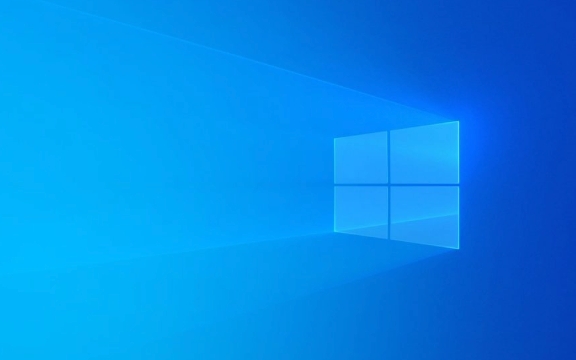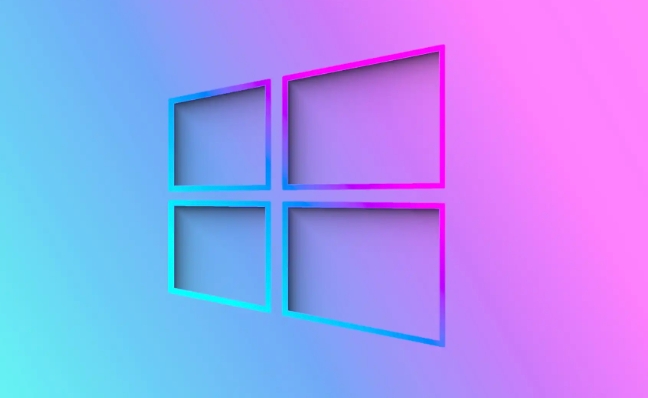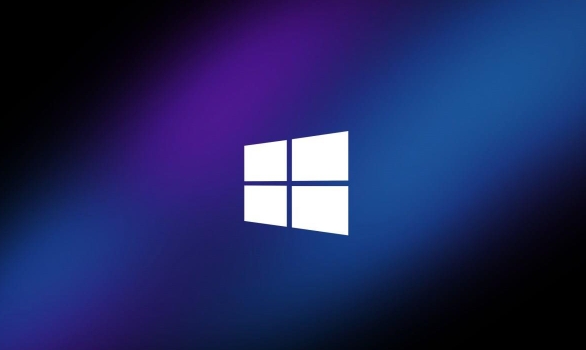A VPN is a service that enhances online privacy and security by creating an encrypted connection between your device and the internet through a remote server. 1. It hides your real IP address, making it appear as if you're browsing from the server’s location, such as connecting to a Berlin server while in New York. 2. It protects your data from ISPs, hackers, and trackers by encrypting all internet traffic. 3. It secures your information on public Wi-Fi networks, preventing unauthorized access. 4. It allows bypassing censorship by accessing geo-blocked content like Netflix US or restricted news sites. 5. It can help avoid price discrimination by masking your location to find better online deals. However, not all VPNs are reliable—free services may log or sell your data, so choosing a reputable provider with a no-logs policy is essential. While a VPN improves privacy and security, it does not make you completely anonymous or protect against malware and phishing. Ultimately, using a trustworthy VPN is a worthwhile step for anyone seeking greater control over their digital footprint in an era of widespread online tracking.

A VPN, or Virtual Private Network, is a service that creates a secure, encrypted connection between your device and the internet. Instead of connecting directly to websites or online services, your traffic first goes through a remote server operated by the VPN provider. This masks your real IP address and protects your data from being seen by hackers, ISPs, or other third parties.

Think of it like a private tunnel through the public internet—your information travels safely inside, hidden from prying eyes.
How a VPN Works
When you connect to a VPN:

- Your device establishes an encrypted connection to a VPN server.
- Your real IP address is replaced with the IP address of the server.
- All your internet traffic (browsing, streaming, downloads) is routed through that server.
- Websites and services see the server’s location and IP, not yours.
This means if you're in New York but connect to a server in Berlin, websites will think you're browsing from Germany.
Why You Should Use a VPN
1. Protect Your Privacy Online
Your Internet Service Provider (ISP) can see everything you do online—what sites you visit, how long you stay, even the devices you use. A VPN prevents your ISP from monitoring your activity by encrypting your traffic.

Also, many websites and advertisers track your behavior across the web using your IP address. A VPN helps reduce this tracking by hiding your real IP.
2. Secure Your Data on Public Wi-Fi
Public Wi-Fi networks—at airports, cafes, or hotels—are often unsecured. Hackers on the same network can intercept your data, like passwords or credit card info.
A VPN encrypts your connection, making it extremely difficult for anyone to snoop on what you're doing, even on risky networks.
3. Bypass Censorship and Access Blocked Content
Some countries or networks block access to certain websites (like social media, news outlets, or streaming platforms). A VPN lets you connect through a server in another country, helping you access content that might be restricted in your region.
For example:
- Watch Netflix US content while abroad.
- Access news sites blocked by local governments.
- Use messaging apps restricted in certain countries.
4. Avoid Price Discrimination and Targeted Ads
Some online services change prices based on your location or browsing history. Airlines, hotels, and shopping sites might show higher prices if they know you’re searching repeatedly or coming from a wealthier region.
Using a VPN can help you appear to be in a different location, potentially unlocking better deals.
Things to Keep in Mind
- Not all VPNs are equal: Free VPNs may log your data, sell it to advertisers, or offer weak encryption. Choose a reputable provider with a clear no-logs policy.
- Speed may vary: Encrypting data and routing through distant servers can slow your connection slightly. Premium services often minimize this impact.
- VPNs aren’t magic: They protect your connection and hide your IP, but they don’t make you completely anonymous or protect against malware, phishing, or poor online habits.
Bottom Line
A VPN is a simple, effective tool for enhancing your online privacy, securing your data on public networks, and accessing content freely. Whether you're working remotely, traveling, or just browsing at home, using a trustworthy VPN adds a valuable layer of protection.
It’s not about hiding something shady—it’s about taking control of your digital footprint in a world where online tracking is the norm.
Basically, if you care about your privacy and security, a good VPN is worth using.
The above is the detailed content of What is a VPN and Why You Should Use One. For more information, please follow other related articles on the PHP Chinese website!

Hot AI Tools

Undress AI Tool
Undress images for free

Undresser.AI Undress
AI-powered app for creating realistic nude photos

AI Clothes Remover
Online AI tool for removing clothes from photos.

Clothoff.io
AI clothes remover

Video Face Swap
Swap faces in any video effortlessly with our completely free AI face swap tool!

Hot Article

Hot Tools

Notepad++7.3.1
Easy-to-use and free code editor

SublimeText3 Chinese version
Chinese version, very easy to use

Zend Studio 13.0.1
Powerful PHP integrated development environment

Dreamweaver CS6
Visual web development tools

SublimeText3 Mac version
God-level code editing software (SublimeText3)
 How to set up Win10 firewall whitelist? Win10 plus firewall whitelist
Jul 14, 2023 pm 03:18 PM
How to set up Win10 firewall whitelist? Win10 plus firewall whitelist
Jul 14, 2023 pm 03:18 PM
The built-in firewall function of win10 can block the attacks of some malicious programs for us, but occasionally it may be blocked by the firewall and prevent the program from being installed normally. If we can understand the security of this software and the importance of installation, then we can allow the installation by adding a whitelist to the firewall. 1. Use the win key to open the win10 system menu window, and click on the left side of the menu window to open the "Settings" dialog box. 2. In the Windows Settings dialog box that opens, you can look for the "Update & Security" item and click to open it. 3. After entering the upgrade and security policy page, click the "Windows Security Manager" sub-menu in the left toolbar. 4. Then in the specific content on the right
 How to install Zeek Internet Security Monitor 12 on Debian
Feb 19, 2024 pm 01:54 PM
How to install Zeek Internet Security Monitor 12 on Debian
Feb 19, 2024 pm 01:54 PM
Bro has been renamed Zeek and is a powerful open source network security monitor. It is not only an IDS, but also a network analysis framework. Zeek provides you with real-time insights into network operations to help detect and prevent security incidents. Its benefits include detailed network traffic logging, event-driven analysis and the ability to detect a wide range of network anomalies and security events. Install Zeek Internet Security Monitor 12 Bookworm on Debian Step 1. Before installing Zeek, you need to update and refresh your Debian repository by executing the following command: sudoaptupdatesudoaptupgrade This command will update the package list for upgrades and new package installations. Step 2. Install ZeekN on Debian
 Master network security and penetration testing in Go
Nov 30, 2023 am 10:16 AM
Master network security and penetration testing in Go
Nov 30, 2023 am 10:16 AM
With the development of the Internet, network security has become an urgent issue. For technical personnel engaged in network security work, it is undoubtedly necessary to master an efficient, stable, and secure programming language. Among them, Go language has become the first choice of many network security practitioners. Go language, referred to as Golang, is an open source programming language created by Google. The language has outstanding features such as high efficiency, high concurrency, high reliability and high security, so it is widely used in network security and penetration testing.
 Roborock sweeping robot passed Rheinland dual certification, leading the industry in corner cleaning and sterilization
Mar 19, 2024 am 10:30 AM
Roborock sweeping robot passed Rheinland dual certification, leading the industry in corner cleaning and sterilization
Mar 19, 2024 am 10:30 AM
Recently, TUV Rheinland Greater China ("TUV Rheinland"), an internationally renowned third-party testing, inspection and certification agency, issued important network security and privacy protection certifications to three sweeping robots P10Pro, P10S and P10SPro owned by Roborock Technology. certificate, as well as the "Efficient Corner Cleaning" China-mark certification. At the same time, the agency also issued self-cleaning and sterilization performance test reports for sweeping robots and floor washing machines A20 and A20Pro, providing an authoritative purchasing reference for consumers in the market. As network security is increasingly valued, TUV Rheinland has implemented strict network security and privacy protection for Roborock sweeping robots in accordance with ETSIEN303645 standards.
 Artificial Intelligence in Cybersecurity: Current Issues and Future Directions
Mar 01, 2024 pm 08:19 PM
Artificial Intelligence in Cybersecurity: Current Issues and Future Directions
Mar 01, 2024 pm 08:19 PM
Artificial intelligence (AI) has revolutionized every field, and cybersecurity is no exception. As our reliance on technology continues to increase, so do the threats to our digital infrastructure. Artificial intelligence (AI) has revolutionized the field of cybersecurity, providing advanced capabilities for threat detection, incident response, and risk assessment. However, there are some difficulties with using artificial intelligence in cybersecurity. This article will delve into the current status of artificial intelligence in cybersecurity and explore future directions. The role of artificial intelligence in cybersecurity Governments, businesses and individuals are facing increasingly severe cybersecurity challenges. As cyber threats become more sophisticated, the need for advanced security protection measures continues to increase. Artificial intelligence (AI) relies on its unique method to identify, prevent
 Ten methods in AI risk discovery
Apr 26, 2024 pm 05:25 PM
Ten methods in AI risk discovery
Apr 26, 2024 pm 05:25 PM
Beyond chatbots or personalized recommendations, AI’s powerful ability to predict and eliminate risks is gaining momentum in organizations. As massive amounts of data proliferate and regulations tighten, traditional risk assessment tools are struggling under the pressure. Artificial intelligence technology can quickly analyze and supervise the collection of large amounts of data, allowing risk assessment tools to be improved under compression. By using technologies such as machine learning and deep learning, AI can identify and predict potential risks and provide timely recommendations. Against this backdrop, leveraging AI’s risk management capabilities can ensure compliance with changing regulations and proactively respond to unforeseen threats. Leveraging AI to tackle the complexities of risk management may seem alarming, but for those passionate about staying on top in the digital race
 How do C++ functions implement network security in network programming?
Apr 28, 2024 am 09:06 AM
How do C++ functions implement network security in network programming?
Apr 28, 2024 am 09:06 AM
C++ functions can achieve network security in network programming. Methods include: 1. Using encryption algorithms (openssl) to encrypt communication; 2. Using digital signatures (cryptopp) to verify data integrity and sender identity; 3. Defending against cross-site scripting attacks ( htmlcxx) to filter and sanitize user input.
 The U.S. government recommends that developers stop using C/C++ and switch to memory-safe programming languages
Feb 29, 2024 pm 03:19 PM
The U.S. government recommends that developers stop using C/C++ and switch to memory-safe programming languages
Feb 29, 2024 pm 03:19 PM
According to news from this site on February 29, the U.S. government recently released a cybersecurity report calling on developers to stop using programming languages ??that are prone to memory safety vulnerabilities, such as C and C++, and instead use memory-safe programming languages ??for development. The report was released by the Office of the U.S. Cyberspace Director (ONCD) to implement U.S. President Biden’s cybersecurity strategy with the goal of “protecting the cornerstone of cyberspace.” Memory safety means that a program can effectively avoid potential errors and vulnerabilities when accessing memory, such as buffer overflows and dangling pointers. Java is considered a memory-safe programming language because of its runtime error detection capabilities. In contrast, C and C++ allow direct access to memory addresses and lack bounds checking, which makes it






